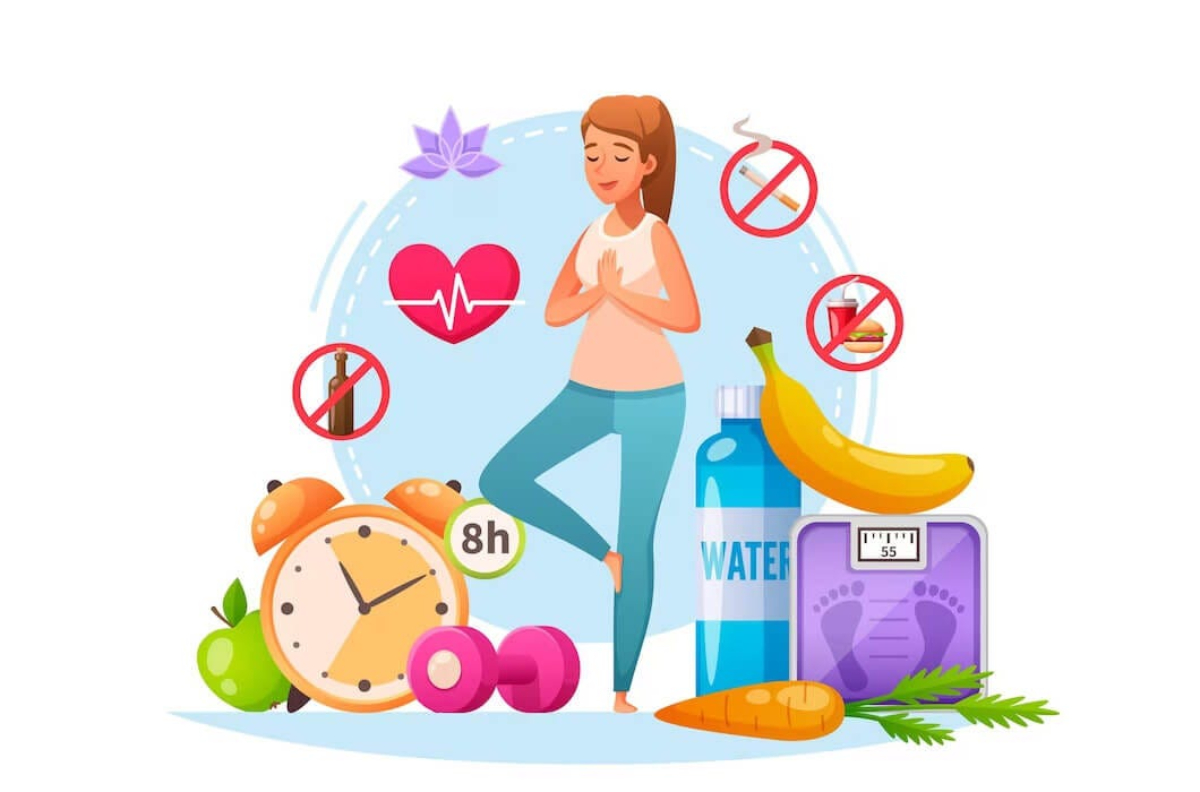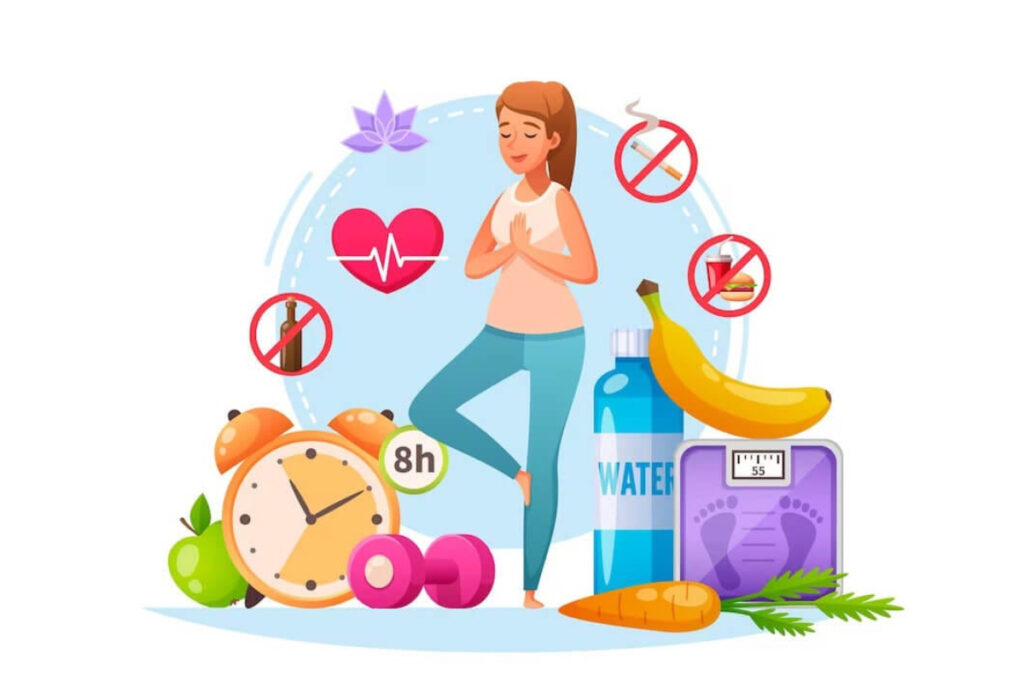
Unlock Vibrant Energy With These Daily Wellness Habits
Vibrant energy is not just a byproduct of good sleep or a quick caffeine fix. Instead, it’s the result of a well-rounded lifestyle that supports the body and mind consistently. In today’s fast-paced world, many people feel drained, mentally foggy, or physically sluggish. Fortunately, science-backed wellness habits can help restore and maintain high energy levels every day.
Rather than chasing quick fixes, consider embracing simple yet powerful habits to unlock sustainable vitality. From nutrition and movement to mindset and recovery, these daily practices work together to support the body’s natural energy systems. Now, let’s explore how to elevate your daily routine and rediscover your energetic self.

The Science Behind Energy and Vitality
Human energy production revolves around cellular processes, primarily within the mitochondria—the powerhouses of the cells. These organelles, in turn, convert glucose, oxygen, and nutrients into adenosine triphosphate (ATP), the primary energy currency.
However, oxidative stress, inflammation, and poor lifestyle habits can impair mitochondrial function. As a result, this leads to fatigue, reduced cognitive performance, and even accelerated aging.
Moreover, according to research published in Cell Metabolism, lifestyle modifications can directly enhance mitochondrial efficiency and reduce fatigue symptoms. Therefore, integrating science-backed habits daily can protect and even improve cellular energy output.
Nutritional Habits That Power You Through the Day
Moreover, energy begins at the cellular level, and what we eat determines how efficiently cells perform. In fact, a well-balanced diet rich in nutrients can not only prevent the mid-day crash but also boost alertness and performance.
Prioritize Nutrient-Dense Foods
Not all calories are created equal. A diet rich in whole foods provides the nutrients needed for sustained energy.
- Complex carbohydrates like oats, quinoa, and sweet potatoes provide slow-releasing glucose.
- Lean proteins such as eggs, legumes, and poultry support muscle repair and metabolic activity.
- Healthy fats like those found in avocados, nuts, and olive oil fuel long-lasting energy.
- Micronutrients, especially B vitamins, magnesium, and iron, support mitochondrial health.
Optimize Meal Timing and Frequency
When and how often you eat can significantly affect your energy levels. Skipping meals or irregular eating habits can lead to blood sugar imbalances.
Try to:
- First of all, eat breakfast within one hour of waking up to kickstart metabolism.
- Additionally, include a protein source in every meal to stabilize blood sugar.
- Moreover, avoid late-night heavy meals that disrupt sleep and energy restoration.
Hydration: The Overlooked Energy Booster
Mild dehydration can cause fatigue, dizziness, and difficulty concentrating. Since our bodies are about 60% water, proper hydration plays a crucial role in sustaining energy levels.
Water’s Role in Cellular Energy
Water is essential for nutrient transport, temperature regulation, and even ATP production. In fact, according to a 2012 study in the Journal of Nutrition, even mild dehydration (1–2%) can impair mood and cognitive function.
To maintain optimal hydration, consider the following tips:
- First, drink half your body weight (in ounces) of water daily.
- Additionally, add electrolytes if you exercise heavily or live in a hot climate.
- Finally, include water-rich foods like cucumbers, watermelon, and oranges in your diet.
Daily Movement for Mental and Physical Energy
Engaging in regular physical activity significantly boosts energy levels by increasing oxygen flow, stimulating endorphin release, and promoting mitochondrial biogenesis. Moreover, consistent movement enhances overall vitality, reduces fatigue, and supports long-term wellness. Therefore, incorporating exercise into your daily routine is one of the most effective and natural ways to unlock vibrant energy and improve overall health.
Incorporate Daily Physical Activity
You don’t need intense workouts to feel energized. Light to moderate movement done consistently yields significant benefits.
Types of Movement That Boost Energy
- Moreover, brisk walking or light jogging increases circulation and enhances brain function.
- In addition, resistance training improves muscle strength and boosts metabolic efficiency.
- Furthermore, yoga and stretching support flexibility while promoting stress reduction.
Regular exercise improves sleep quality, enhances mood, and increases mental clarity. According to the American Psychological Association, even 20 minutes of movement a day can significantly enhance energy and focus.
Sleep Hygiene: Recharging the Mind and Body
Sleep is when the body repairs, regenerates, and resets. Poor sleep habits can wreak havoc on energy levels, hormonal balance, and cognitive performance.
Build a Consistent Sleep Routine
Our internal circadian rhythms thrive on consistency. Going to bed and waking up at the same time every day helps the body anticipate and prepare for rest.
- Aim for 7–9 hours of uninterrupted sleep.
- Avoid screens and blue light exposure an hour before bedtime.
- Keep the room dark, cool, and quiet to optimize melatonin production.
Avoid Sleep Disruptors
To improve sleep quality, it’s important to limit caffeine, alcohol, and late-night snacking. Ideally, stop caffeine intake by early afternoon to prevent restlessness. Additionally, avoid alcohol near bedtime, as it can disrupt your sleep cycles. Furthermore, skipping late-night snacks helps regulate digestion and promotes deeper rest, leading to a more restorative night’s sleep overall.
Mindfulness and Stress Management for Lasting Energy
Chronic stress significantly drains energy by consistently triggering the release of cortisol and adrenaline. As a result, these stress hormones disrupt sleep quality and impair mitochondrial function—the body’s main energy producers. Consequently, this leads to ongoing fatigue and reduced vitality. Over time, if left unmanaged, chronic stress can negatively impact overall health and long-term energy levels.
Practice Daily Mindfulness Techniques
Mindfulness reduces sympathetic nervous system dominance and enhances parasympathetic (rest-and-digest) activity, allowing for better energy restoration.
Simple Techniques That Calm the Mind
- Deep breathing exercises regulate the nervous system and promote clarity.
- Meditation increases gray matter in areas of the brain related to memory and focus.
- Gratitude journaling rewires the brain for positivity and mental resilience.
By incorporating these small practices, you train your body to stay calm and focused, which supports sustained energy throughout the day.
Sunlight Exposure and Circadian Rhythm Alignment
Sunlight does more than brighten your day. It directly impacts mood, sleep-wake cycles, and vitamin D synthesis.
Why Morning Sunlight Matters
Early-day light exposure regulates melatonin production and helps set your body clock. This improves both sleep onset and daytime energy.
- Spend 10–20 minutes in natural light within one hour of waking.
- If sunlight is limited, consider using a light therapy box.
- Step outside during breaks to maintain alertness and mood.

Support Your Gut Health for Better Energy Absorption
Your gut is where energy extraction begins. If digestion or nutrient absorption is impaired, so is your energy output.
Nurture a Healthy Microbiome
The gut microbiome influences everything from immunity to mood to nutrient assimilation.
Add Gut-Friendly Foods Daily
- Fermented foods like yogurt, kimchi, and kefir introduce beneficial bacteria.
- Prebiotics from onions, garlic, and bananas feed good microbes.
- Polyphenols in berries and green tea help modulate microbial balance.
A 2016 review in Frontiers in Cellular and Infection Microbiology linked microbial diversity to improved mitochondrial function and energy balance.
Breathwork and Oxygen Utilization
We often take breathing for granted. However, conscious breathwork improves oxygen delivery and energy at the cellular level.
Use Breathwork to Calm and Energize
Practices like box breathing, diaphragmatic breathing, and alternate nostril breathing can boost alertness and reduce fatigue.
Try this simple technique:
- Inhale for 4 seconds.
- Hold your breath for 4 seconds.
- Exhale for 4 seconds.
- Hold again for 4 seconds.
Repeat for five cycles to feel more centered and awake.
Cold Exposure and Energy Resilience
Cold exposure is a powerful biohacking technique that stimulates the sympathetic nervous system, boosts adrenaline production, and enhances mitochondrial function. As a result, it helps improve energy levels, mental clarity, and resilience. Moreover, consistent cold therapy can support overall metabolic health and strengthen the body’s stress response, making it a valuable addition to any wellness routine.
Try Cold Showers or Ice Baths
In fact, studies show that cold therapy can increase norepinephrine levels by 200–300%, which, in turn, boosts focus and energy. To begin, start with 30 seconds of cold water at the end of your shower and gradually build up.
Over time, this simple habit can significantly improve your mental toughness, mood, and metabolic flexibility.
The Role of Supplements in Energy Production
While food should always come first, supplements can fill gaps and enhance energy production pathways.
Key Supplements That Support Mitochondrial Health
- CoQ10 – Helps produce ATP and acts as an antioxidant.
- Magnesium – Supports over 300 biochemical reactions including energy metabolism.
- Vitamin B12 – Essential for red blood cell formation and neurological health.
- L-Carnitine – Aids in the transport of fatty acids into mitochondria.
Before starting new supplements, consult a healthcare provider to personalize your choices based on individual needs.
Digital Detox and Mental Refreshment
Excessive screen time and nonstop notifications can quickly drain your mental energy. However, by taking intentional breaks from digital devices, you can effectively restore focus, improve attention span, and enhance mental clarity. Moreover, these mindful pauses reduce cognitive overload, making it easier to stay productive, balanced, and mentally refreshed throughout the day.
Create Tech-Free Zones and Times
Try these simple rules:
- No screens during the first hour after waking.
- Use “Do Not Disturb” during work blocks.
- Designate screen-free meals and bedtime routines.
These boundaries promote presence, focus, and emotional well-being—all essential for maintaining vibrant energy.
Social Connection and Emotional Vitality
Human beings are wired for connection. Strong social bonds reduce stress and release oxytocin, which promotes well-being and sustainable energy.
Cultivate Daily Positive Interactions
- Share meals with loved ones.
- Call or message a friend for support.
- Join group activities or volunteer work.
According to a Harvard study spanning 75 years, good relationships are among the strongest predictors of happiness and longevity.
Building Your Energy-Rich Lifestyle
Unlocking vibrant energy isn’t about perfection—it’s about consistent progress. Incorporate one or two new habits each week and observe how your energy shifts.
Combine and Stack Habits for Greater Impact
Here are a few simple combos:
- Morning sunlight + walk + hydration = energized start.
- Deep breathing + gratitude journaling = peaceful mind.
- Healthy lunch + standing desk = sustained afternoon energy.
When you design your day with intention, your energy becomes a byproduct of alignment and balance.
Health is a state of body. Wellness is a state of being.
Fixtus richard.
Conclusion
Vibrant energy is not elusive or reserved for the lucky few. It’s the result of mindful, consistent actions rooted in science and self-awareness. From nourishing your body with the right foods to prioritizing rest, movement, and human connection, every small choice adds up.
These daily wellness habits not only help boost physical stamina but also enhance emotional resilience and mental clarity. Start today with just one change and watch how your energy—and life—transform.






